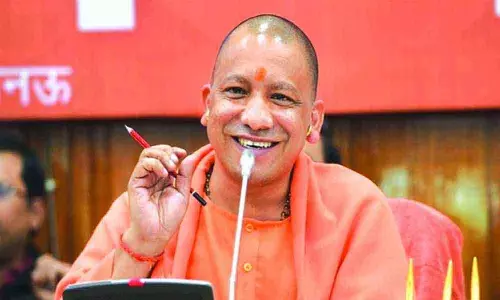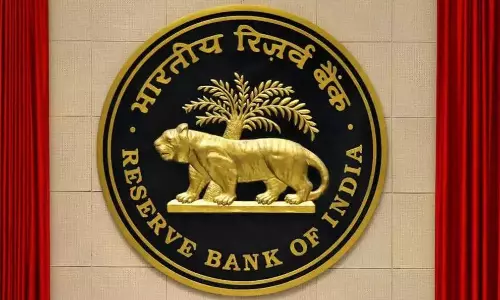
All in the name of refugees
text_fieldsThe Citizenship (Amendment) Bill (CAB) which amends the Indian Citizenship Act, 1955, was passed by Lok Sabha on Monday with a 311-80 majority.
Prime Minister Narendra Modi has claimed that the bill is in line with the principles of inclusion, humanitarian values and trust followed by India for centuries. Modi has also praised home minister Amit Shah for moving and getting passed the piece of legislation and the members of parliament for voting in its favour. If and when Rajya Sabha also passes the bill, the bill will make refugees who have arrived in India before 31 December 2014 from Pakistan, Bangladesh and Afghanistan belonging to Hindu, Sikh, Buddhist, Parsi, Jain and Chrsitian religions eligible for Indian citizenship subject to specified conditions.
In pursuit of the same objectives, home minister Shah has also announced that the National Register of Citizens (NRC) will be introduced country wide soon. What has invited a strong and staunch resistance of the Opposition in parliament is the careful insistence on excluding Muslims, the largest religious minority of the country, from the communities eligible for citizenship. A direct meaning of the provision of the bill is that whatever be the helpless plight due to which a Muslim refugeee arrives in India, and however long he may have been waiting for Indian citizenship, the doors to obtain that document will not be opened for him.
At the same time, quite paradoxically, the prime minister asserts that this discrimination is in consonance with the country's great tradition and humanity! And the champion of the bill, the home minister, also claims repeatedly within the house and elsewhere, that the bill is not against any community! In the present scenario, it would be correct to asess that CAB is not quite unexpected or unnatural. For, the current rulers from the sangh parivar are an entity that has always insisted that in India there is no section called religious minority itself. For the same reason, radical Hindutva exponents have consistently and ruthlessly denounced the status of Muslims as a religious minority, the National Commission for Minorities and the Rajinder Sacchar Committee Report that researched and presented the subject of Muslim backwardness.
It does not make an exception of BJP's stance that in order to mislead the world and the country, the party has formed a BJP Minority Morcha and hoisted its own nominees at its helm. It may also be noted that in the 543-strong Lok Sabha, the Hindutva party does not have even a handful of of Muslim MP's. It would be more appropriate to view the new CAB as part of an extremist nationalist movement- which rejects the very theory of secularism as the foundation of India's constitution - implementing its declared agenda with a sense of urgency.
In objective terms, the number of refugees who have come to India from Pakistan or Afghanistan, is numerically very limited. The largest number of refugees in fact came from the erstwhile East Pakistan that became Bangladesh in 1971. And the majority of them are those who entered the country, or were brought here, around the time of the 1971 India-Pak war. By official figures their number was 20 lakh and a good percentage of them were Hindus.
It is also a fact that it was India's support to Sheikh Mujiburrahman and Awami League - both secessionists in the eyes of Pakistani military rulers - in the 1970 general election of Pakistan that drove several lakhs of Bengalis to India. But it was explained at that time that India was forced to support the Bangladesh liberation movement in order to help the lakhs of people who came to India as victims of excesses by Pak military. Although India won the war, the Pak army succumbed and a new free Bangladesh was founded, the majority of refugees stayed on in India.
They have been living in Assam, West Bengal and other northeastern states. Regardless of the fact that the new law aims at granting citizenship to only the Hindus among them, the natives in those states stiffly oppose the move as a matter of protecting their identity. And those in the forefront of this opposition include BJP's allies too. Though Amit Shah assures them that the new law will not apply to them, the protesters do not trust that word. Thus as a result, the sangh parivar has in effect opened a Pandora's box whose consequences are to be waited for and watched.
The course of those who have declared that they would move the Supreme Court against the bill, also remains to be seen. But one thing is certain: the new class that has set out to further steal the calm of 130 crore-strong people - who have been forced to suffer all the dire consequences of the partition of the country on religious lines - is not leading this country to peace or prosperity. If lovers of humanity and peace-loving citizenry are not able to rein in such forces, it will not be a particular community alone that will suffer its consequences.























